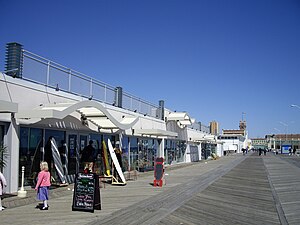Asbury Park Settlement Rejected
City’s Misconstrued Settlement to Property Owners’ Not Enforceable
A New Jersey appeals court recently held that a settlement allegedly reached with a property owner in the Asbury Park oceanfront redevelopment area was not enforceable. Asbury Partners, as the master redeveloper of Asbury Park’s waterfront redevelopment area, had requested that the City condemn certain properties which it was unable to acquire through negotiations. The redeveloper agreed to repay the City for the cost of acquiring the condemned properties, including property owned by the Estate of Pasquale N. Vaccaro. The condemnation complaint against the Vaccaro Estate, as well as a second and separate complaint, alleged environmental contamination and sought funds to remediate the property upwards of $2 million at the Estate’s expense. While the actions were pending, the City extended an offer to the Estate believing the offer was authorized by Asbury Partners. Under the offer, the City would not seek remediation costs and the Estate could retain the $675,000 held on deposit by the courts as the City’s estimate of just compensation providing the Estate would not seek additional just compensation. The Estate accepted the offer, but the City quickly changed its position and rescinded the offer. The correct offer — according to the City and Asbury Partners — required the Estate to waive its rights to the deposited funds in exchange for a nominal sum and being released from any remediation liability.
The Estate sought to have the original settlement offer enforced, which the trial court did by applying the four-part test in Conduit & Foundation Corp. v. City of Atlantic City, 2 N.J. Super. 433 (Ch. Div. 1949) (test cited here). Partners, the redeveloper, appealed from the order enforcing the settlement and argued that the settlement was void because City was never authorized to enter into the agreement. The Appellate Division agreed because it found material factual disputes which required an evidentiary hearing. The Appellate Division reversed the order enforcing the settlement, and remanded the matter to the Law Division for an evidentiary hearing.
This case reinforces the need for parties to eminent domain cases and, in particular, redevelopment takings, to ensure that any negotiations regarding a potential resolution involve all interested parties. Here, while the City had apparently believed that it could amicably resolve the Vaccaro case, any settlement would have required input from the redeveloper who was paying for the property, and also required approval from the governing body. A copy of the Appellate Division’s opinion in City of Asbury Park v. Estate of Pasquale N. Vaccaro, A-6233-09T4 (May 6, 2011) can be found here.
For more on redevelopment in Asbury Park, please see the following blog posts and newspaper articles:
Asbury Park Property Owner Wins Opportunity to Seek Amendment to Redevelopment Plan
Eminent Domain Moves from Front Page to Big Screen
iStar Financial takes control of Asbury Park waterfront development – Star-Ledger (12/16/2009)
The author wishes to acknowledge the assistance of Cory K. Kestner, Esq., of McKirdy & Riskin, PA, in the preparation of this article.







